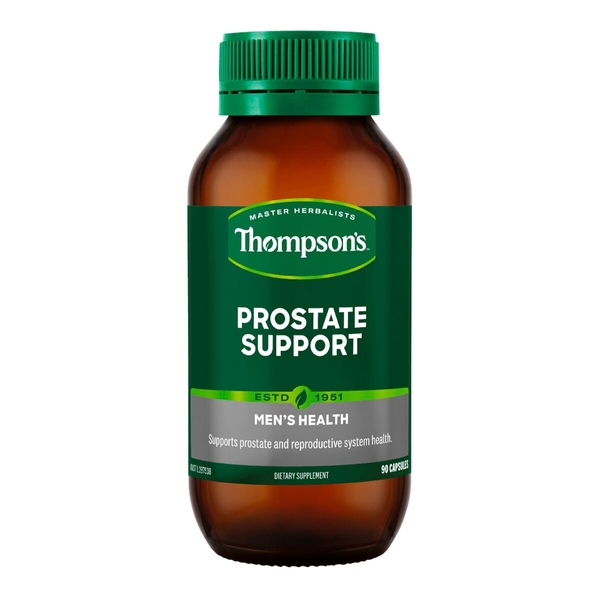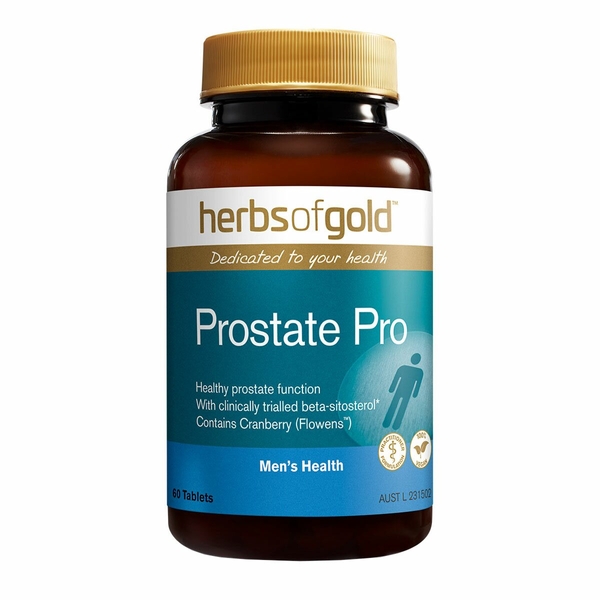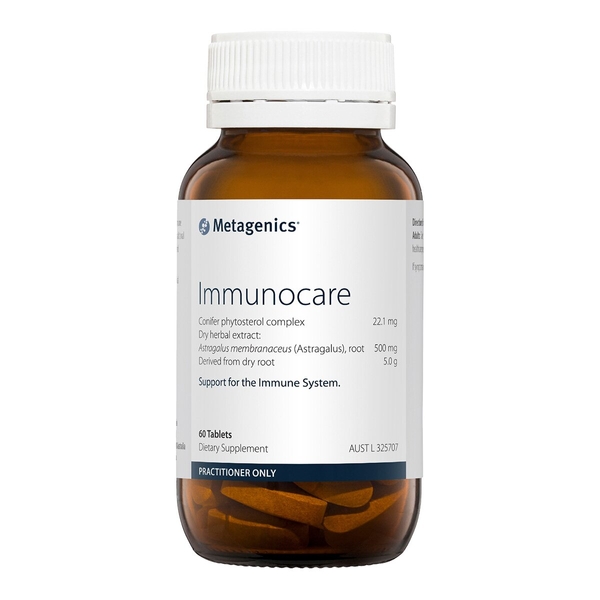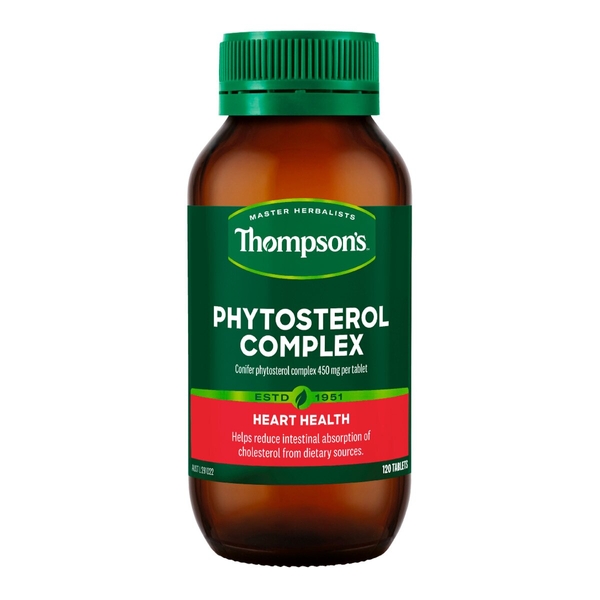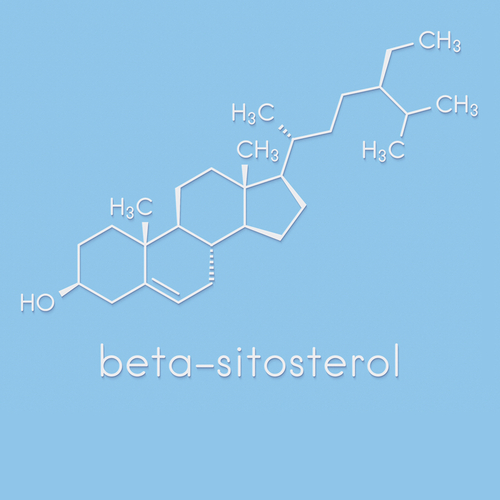
Beta-sitosterol
Scientific names: Beta-Sitosterol
Alternate names: 24-beta-ethyl-delta-5-cholesten-3beta-ol, 24-ethyl-cholesterol, 3-beta-stigmast-5-en-3-ol, B-sitosterol 3-B-D-glucoside, B-Sitosterolin, B-Sitosterols, Beta Sitosterin, Bêta-sitostérine, Beta Sitosterol, Bêta-Sitostérol, Beta-sitosterol glucoside, Beta-sitosterol glycoside, Betasitosterol, Cinchol, Cupreol, Glucoside de Bêta-Sitostérol, Quebrachol, Rhamnol, Sitosterin, Sitosterol
Actions: Anti-cancer, Hormonal, Immunological, Lipid-lowering, Prostate
Background
Beta-sitosterol is a type of chemical called a plant sterol. It's similar to cholesterol and is found in fruits, vegetables, nuts, and seeds.
Beta-sitosterol might help reduce cholesterol levels by limiting the amount of cholesterol that is able to enter the body. It can also help reduce swelling in the prostate and other tissues.
People most commonly use beta-sitosterol for lowering cholesterol levels and improving symptoms of an enlarged prostate (BPH). It's also used for heart disease, rheumatoid arthritis (RA), male-pattern baldness, and many other conditions, but there is no good scientific evidence to support many of these other uses.
In the US, foods that contain at least 650 mg of beta-sitosterol are allowed to state that they might reduce the risk for heart disease. Don't confuse beta-sitosterol with sitostanol, a similar plant substance.
Beta-sitosterol might help reduce cholesterol levels by limiting the amount of cholesterol that is able to enter the body. It can also help reduce swelling in the prostate and other tissues.
People most commonly use beta-sitosterol for lowering cholesterol levels and improving symptoms of an enlarged prostate (BPH). It's also used for heart disease, rheumatoid arthritis (RA), male-pattern baldness, and many other conditions, but there is no good scientific evidence to support many of these other uses.
In the US, foods that contain at least 650 mg of beta-sitosterol are allowed to state that they might reduce the risk for heart disease. Don't confuse beta-sitosterol with sitostanol, a similar plant substance.
Safety Safety definitions
When taken by mouth: Beta-sitosterol is likely safe for most people. It's been used safely at a dose of up to 20 grams daily for up to 3 months. It's also been used at a lower dose of 130 mg daily for up to 18 months. It can cause some mild side effects, such as nausea, indigestion, gas, diarrhea, or constipation.
When applied to the skin: There isn't enough reliable information to know if beta-sitosterol is safe or what the side effects might be.
Children: Beta-sitosterol is likely safe when taken in doses of up to 12 grams daily (divided into 3 separate doses) for up to 3 months.
Sitosterolemia, a rare inherited fat storage disease: People with this condition have too much beta-sitosterol and related fats in their blood and tissues. Taking beta-sitosterol makes this condition worse. Don't take beta-sitosterol if you have sitosterolemia.
When applied to the skin: There isn't enough reliable information to know if beta-sitosterol is safe or what the side effects might be.
Special Precautions & Warnings:
Pregnancy and breast-feeding: There isn't enough reliable information to know if beta-sitosterol is safe to use when pregnant or breast-feeding. Stay on the safe side and avoid use.Children: Beta-sitosterol is likely safe when taken in doses of up to 12 grams daily (divided into 3 separate doses) for up to 3 months.
Sitosterolemia, a rare inherited fat storage disease: People with this condition have too much beta-sitosterol and related fats in their blood and tissues. Taking beta-sitosterol makes this condition worse. Don't take beta-sitosterol if you have sitosterolemia.
Effectiveness
NatMed Pro rates effectiveness based on scientific evidence according to the following scale: Effective, Likely Effective, Possibly Effective, Possibly Ineffective, Likely Ineffective, Ineffective, and Insufficient Evidence to Rate.
Likely effective Effectiveness definitions
- Enlarged prostate (benign prostatic hyperplasia or BPH). Taking 60-130 mg of beta-sitosterol by mouth in divided doses daily helps improve symptoms of BPH. But it doesn't actually shrink an enlarged prostate.
- High cholesterol. Taking beta-sitosterol by mouth can lower total and low-density lipoprotein (LDL or "bad") cholesterol levels. But it doesn't raise high-density lipoprotein (HDL or "good") cholesterol levels.
Possibly effective Effectiveness definitions
- Heart disease. Eating foods that contain at least 3.4 grams of plant sterols daily as part of a low-fat, low-cholesterol diet might help prevent heart disease.
- Inherited tendency towards high cholesterol (familial hypercholesterolemia). Taking beta-sitosterol by mouth might help reduce total and low-density lipoprotein (LDL or "bad") cholesterol levels in children and adults with this condition who are also following a cholesterol-lowering diet. But it doesn't seem to work as well as sitostanol or the cholesterol-lowering drug bezafibrate.
Dosing & administration
In adults, beta-sitosterol has most often been used in doses of 3-4 grams by mouth daily for up to 3 months. It's also been used at a lower dose of 60-130 mg daily for up to 18 months. In children, beta-sitosterol has most often been used in doses of 6-12 grams by mouth daily for up to 3 months. Beta-sitosterol is also available in ointments. Speak with a healthcare provider to find out what type of product and dose might be best for a specific condition.
Interactions with pharmaceuticals
It is not known if Beta-Sitosterol interacts with any medicines. Before taking Beta-Sitosterol, talk with your healthcare professional if you take any medications.
Interactions with herbs & supplements
Carotenoids: Beta-sitosterol can reduce how much carotenoids the body absorbs. This includes chemicals like alpha-carotene, beta-carotene, lutein, lycopene, and zeaxanthin. But this may not be important to health. Taking extra carotenoids is probably not necessary.
Vitamin E: Beta-sitosterol may reduce how much vitamin E the body absorbs. But this may not be important to health. Taking extra vitamin E is probably not necessary.
Vitamin E: Beta-sitosterol may reduce how much vitamin E the body absorbs. But this may not be important to health. Taking extra vitamin E is probably not necessary.
Interactions with foods
Beta-sitosterol might reduce how much carotene and vitamin E the body absorbs from foods. But this doesn't seem to be a major concern, so taking supplemental amounts of these nutrients probably isn't necessary.
Products
View all productsPer tablet:
RRP: $94.99$70.29Save: 26%
Create account
RRP: $58.00$46.40Save: 20%
OOS at supplier
Create account
return unknown
Practitioner product
RRP: $82.79$61.26Save: 26%
Create account
vital.ly has licensed monographs from TRC Healthcare.
This monograph was last reviewed on 24/03/2025 11:00:00. Monographs are reviewed and/or updated multiple times per month and at least once per year.
Natural Medicines disclaims any responsibility related to medical consequences of using any medical product. Effort is made to ensure that the information contained in this monograph is accurate at the time it was published. Consumers and medical professionals who consult this monograph are cautioned that any medical or product related decision is the sole responsibility of the consumer and/or the health care professional. A legal License Agreement sets limitations on downloading, storing, or printing content from this Database. No reproduction of this monograph or any content from this Database is permitted without written permission from the publisher. It is unlawful to download, store, or distribute content from this site.

